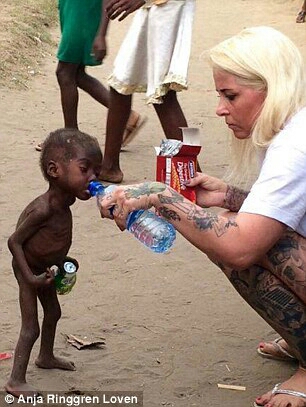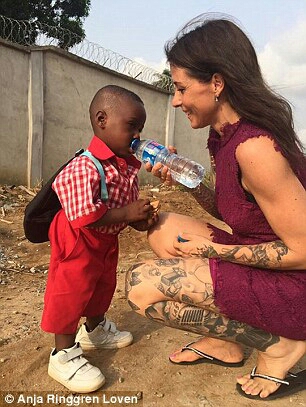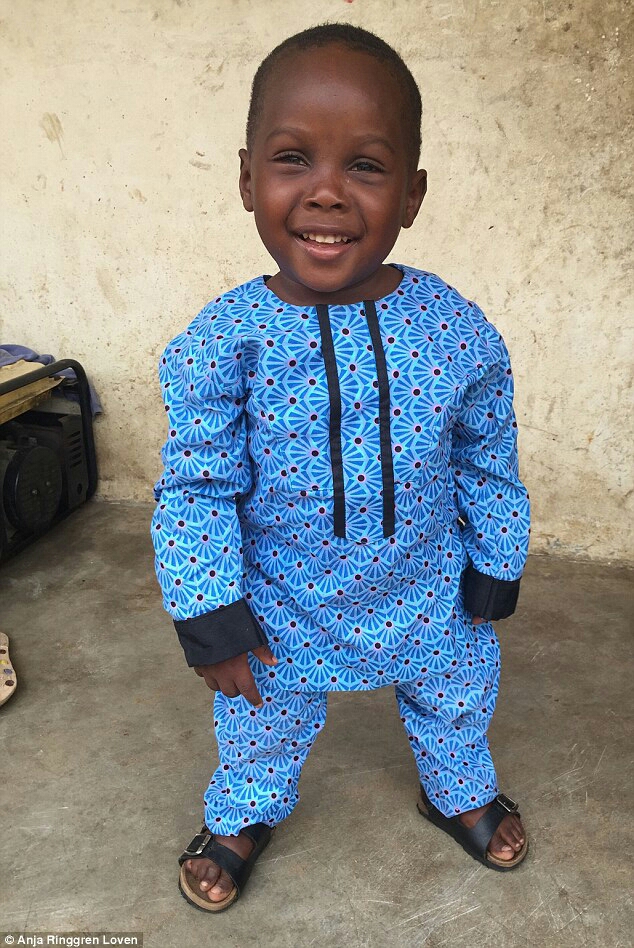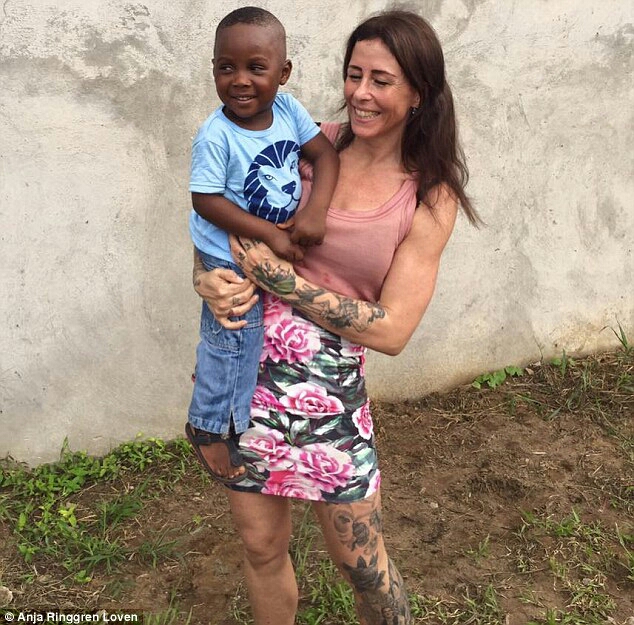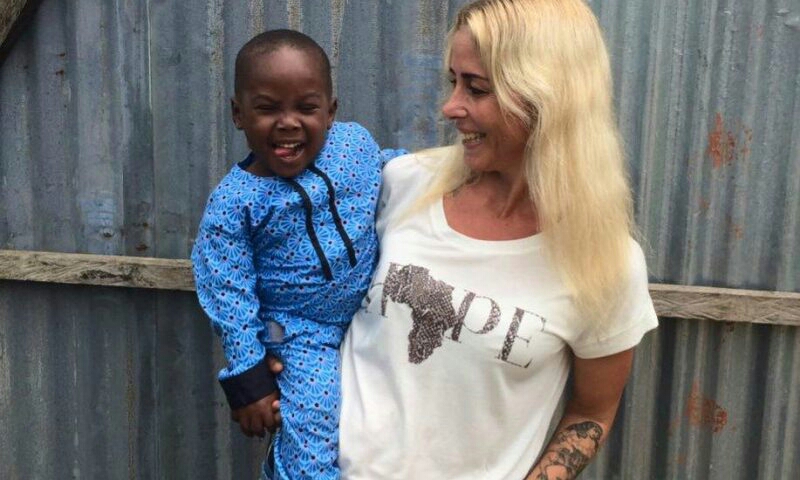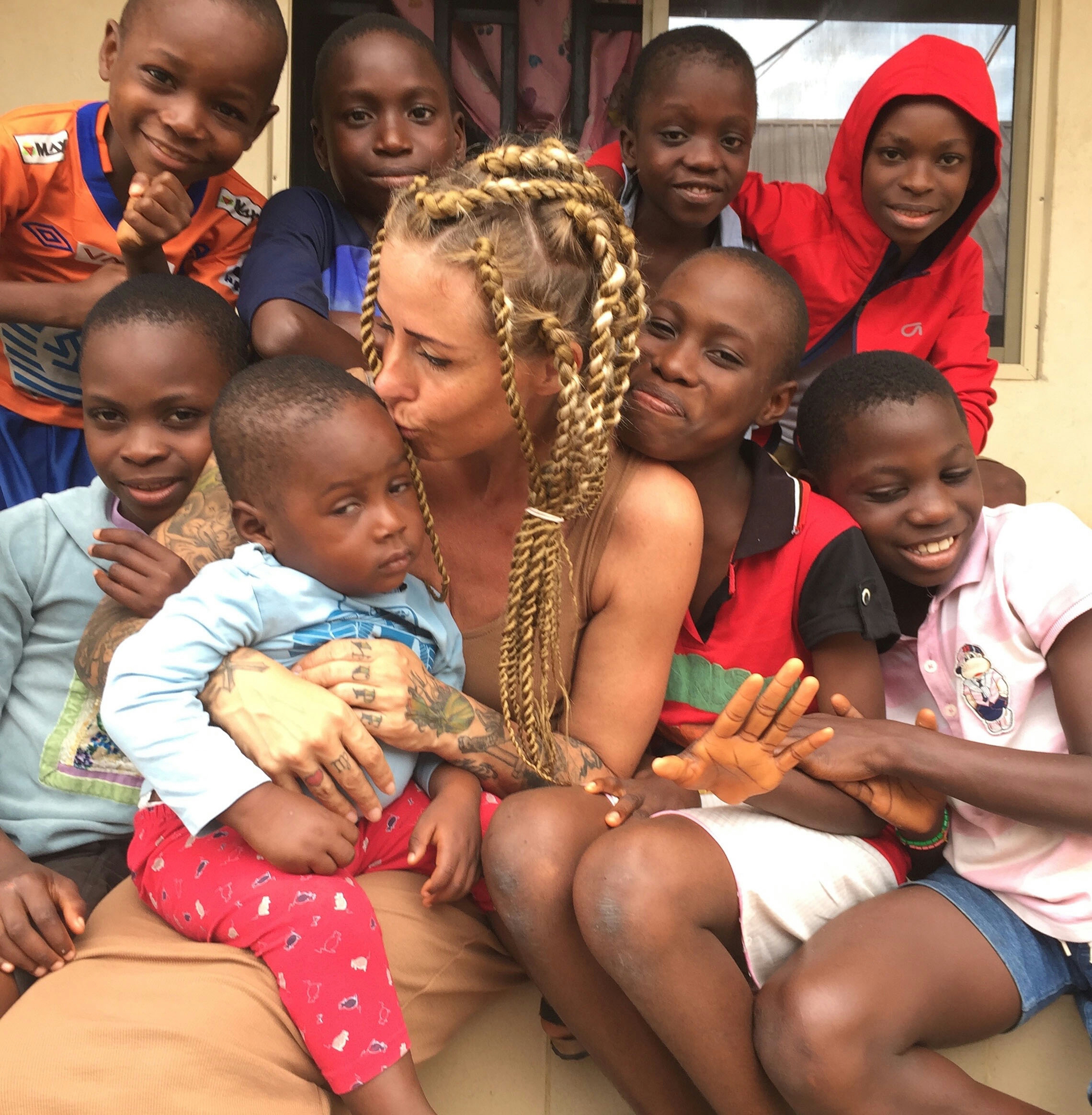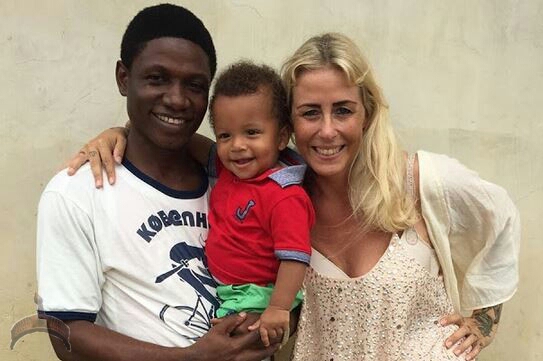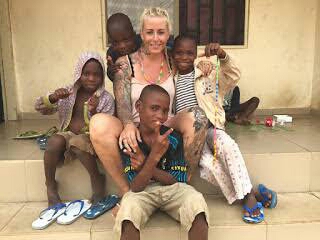by Chinwuba Iyizoba
Jumoke the bread seller whose ordinary work turned her into a model has uncovered how extraordinary and attractive an ordinary work done well, with love and a smile can lead to success.
In 2016, 27 yr old breadseller, Olajumoke Orisaguna—Jumoke, a mother of two was pounding the streets, carrying her wares on her head, eking a living to save her family from starvation.
Unawares, she walked into a street photo-shoot and was caught in the background. While editing the pictures later, the female photo-journalist was so smitten by her photogenic beauty and determined to find her, she posted the picture on instagram and successfully tracked her down and offered her a job as model, thus making an inspiring rag-to-riches story that held Nigerians spell bound for years. Fans couldn’t get enough of her, hope spread among desolate millions in the streets that one day their luck will change.
Unawares, she walked into a street photo-shoot and was caught in the background. While editing the pictures later, the female photo-journalist was so smitten by her photogenic beauty and determined to find her, she posted the picture on instagram and successfully tracked her down and offered her a job as model, thus making an inspiring rag-to-riches story that held Nigerians spell bound for years. Fans couldn’t get enough of her, hope spread among desolate millions in the streets that one day their luck will change.

Her parents were too poor to send her to a formal school, Jumoke had trained as a hairdresser because and in 2010, met and married a craftsman. But their combined income wasn’t adequate to feed their two children. To haul the family out of appalling straits, she moved from Osun to Lagos with one of her daughters, to work in a bakery. It was a hard and difficult work, on foot each day with a tray laden with bread loafs on her head. Yet, come rain or shine, she kept a smile on her face.
That afternoon walking past people talking pictures, unconcerned, she smiled and hurried on, calling for customers; little did she know that Lady Luck saw her.
That afternoon walking past people talking pictures, unconcerned, she smiled and hurried on, calling for customers; little did she know that Lady Luck saw her.
She had since become a runaway success, yet she remains inwardly unaffected by it, humble and straight talking her reality TV shows are filled with great street wisdom and is the darling of you-tubers.
In one of the episodes, she spoke with her usual unadorned candidness, of the shocking things she had seen on social media, things like a man getting married to a man and a woman marrying another woman.
With the candidness of a child she expressed it as utter “unNigerian” and unthinkable.
Jumoke’s wisdom
She was simply expressing her opinion, and besides she isn’t a lettered woman, and as Peter Kreeft, philosophy professor of Boston College said, “There are certain falsehoods that you need a PhD to believe.”
Yet, the floodgates of hate and cyber bullying were immediately flung wide open and attacks on her person and family began. Orchestrated and led by a Ghanaian self proclaimed transsexual who continues to smear her, intent on ruining her, and getting her blacklisted by modeling companies.
Not satisfied with hounding her job, they have turned on her husband and marriage, spreading vicious rumors that she was sleeping with other men and disrespecting her husband.
Yet, come hell or high water, Jumoke is refusing to succumb to threats, and continues sharing her hard gotten wisdoms with Nigerian youths who adore her. And she is not all talk, often swinging into action when she comes across women in grim straits. She recently convinced her promoters to intervene and build a house for an aged woman she saw being evicted from her home.

Yet, young people best remember that Jumoke’s success wasn’t entirely of her own making. “Lady Success” lent her a hand whilst she was busy with her ordinary work selling bread, for love of husband and children.
How true what someone said, that success, true success is really carrying out the duties of everyday and the little things of each day well, with a smile if possible and always elegant. For it is along ordinary paths of life that we meet our destiny.
Still her success is an unlikely story for millions of indigent youths. A rare combination of luck and the goodness of a relentless photo-journalist had made her what she is today, and many Nigerians may never have such luck. They should not be disheartened however, but rather continue doing their ordinary work well, throwing in a smile along, even if their work should suffer the privation of remaining unclaimed till death.
They should remember that just as a man submits to the cruel torture of a surgical operation in order to save his lives; it is quite possible ordinary life’s cruel sufferings might save the life of their souls if accepted with love and a smile. “Pain or suffering of any kind for that matter can, be bearable when accepted as a form of purification,” some spiritual writers say.
And anyone who examines himself honestly will find much to purify: sins, omissions in love, disorderly inclinations which must be paid either in this life or in the next. Suffering is necessarily part of this life, and those who wish to go straight to heaven, after a life spent wholly in God’s service must not shrink from it
And St Paul exhorts in scriptures, “I consider that the sufferings of this present time are not worth comparing with the glory that is to be revealed to us when we contemplate God face to face.”
And St. Josemaria Escriva adds,“ Understand this well: there is something holy, something divine, hidden in the most ordinary situations, and it is up to each one of you to discover it.”
And St. Josemaria Escriva adds,“ Understand this well: there is something holy, something divine, hidden in the most ordinary situations, and it is up to each one of you to discover it.”
Infact, Escriva, with Gospel in hand, constantly taught that God does not want us simply to be good . . . , he wants us to be saints, through and through. However, he wants us to attain that sanctity, not by doing extraordinary things, but rather through ordinary, common activities. It is the way they are done which must be uncommon. There, in the middle of the street, in the office, in the factory, we can be . . . holy, provided we do our job.”
Young people might not all become famous like Jumoke, but their work no matter how ordinary, done with love, and extraordinarily well, is attractive and is a sure path to happiness.
Young people might not all become famous like Jumoke, but their work no matter how ordinary, done with love, and extraordinarily well, is attractive and is a sure path to happiness.














